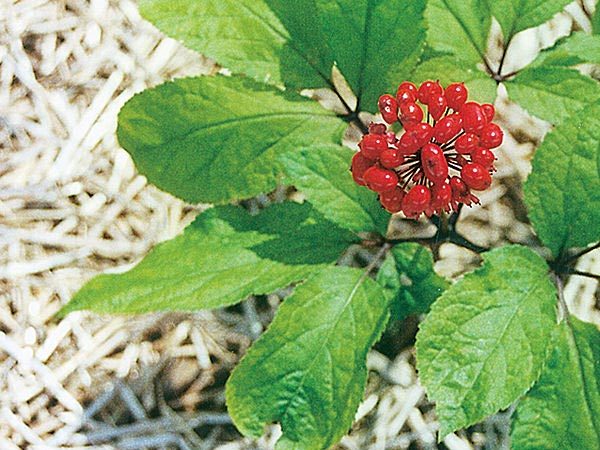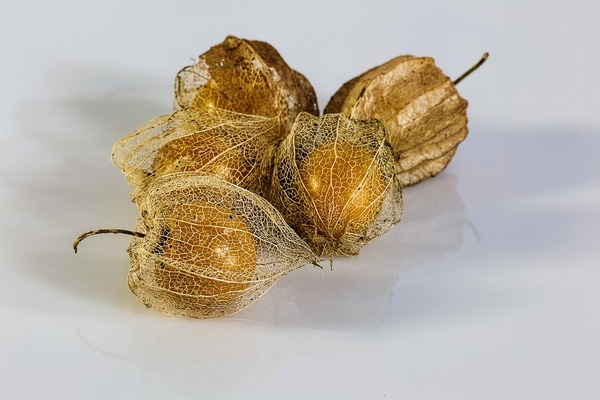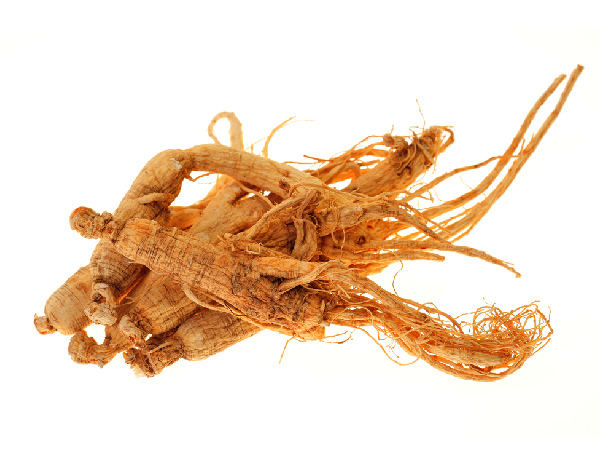Just In
- 2 hrs ago

- 2 hrs ago

- 4 hrs ago

- 5 hrs ago

Don't Miss
- News
 Sharad Pawar's NCP Manifesto Highlights: Calls For Caste Census, Bats For Farmer And Women Welfare
Sharad Pawar's NCP Manifesto Highlights: Calls For Caste Census, Bats For Farmer And Women Welfare - Automobiles
 Price Hike Alert: Jeep & Citroen Cars To Become More Expensive In India
Price Hike Alert: Jeep & Citroen Cars To Become More Expensive In India - Technology
 WhatsApp Introduces Passkey Support for Enhanced Security on iOS – Here’s How To Set It Up
WhatsApp Introduces Passkey Support for Enhanced Security on iOS – Here’s How To Set It Up - Finance
 Mark Zuckerberg's Meta Reports Record Q1 Profit Surge, Projects AI Investments This Year; Stock Slumps
Mark Zuckerberg's Meta Reports Record Q1 Profit Surge, Projects AI Investments This Year; Stock Slumps - Movies
 Tillu Square Box Office Collection Day 28 Prediction: Ahead Of OTT Release, Siddhu's Film Continues Good Run
Tillu Square Box Office Collection Day 28 Prediction: Ahead Of OTT Release, Siddhu's Film Continues Good Run - Sports
 PAK vs NZ Dream11 4th T20I: Squads, Fantasy Tips & Best Picks for Pakistan vs New Zealand fourth match
PAK vs NZ Dream11 4th T20I: Squads, Fantasy Tips & Best Picks for Pakistan vs New Zealand fourth match - Education
 UPSC CAPF 2024 registration begins; Apply online for 506 Assistant Commandant posts, Know more
UPSC CAPF 2024 registration begins; Apply online for 506 Assistant Commandant posts, Know more - Travel
 Escape to Kalimpong, Gangtok, and Darjeeling with IRCTC's Tour Package; Check Itinerary
Escape to Kalimpong, Gangtok, and Darjeeling with IRCTC's Tour Package; Check Itinerary
10 Health Benefits Of Ashwagandha (Indian Ginseng), Dosage & Side Effects
Scientifically termed as Withania somnifera, Ashwagandha is also termed as Indian ginseng and winter cherry. The health benefits of ashwagandha are so vast that it has been used for more than 3000 years. Though the health benefits possessed by ashwagandha are many, it is considered an exotic herb for its stress-relieving properties as compared to the strong drugs that are used to treat depression and anxiety [1] .

The root, leaves, seeds and fruits of the ayurvedic herb are used for various medicinal purposes. An adaptogen, the herb is popular for its ability to manage stress. The therapeutic properties of ashwagandha are the major reason for its incorporation in modern medical science. Rich in antioxidants, tannins, iron, nitrates, potassium, fatty acids and glucose, the herb can have positive effects on the endocrine, cardiovascular, and central nervous systems [2] .
Read on to know the health benefits of Indian ginseng.
Health Benefits Of Ashwagandha
1. Reduces cholesterol levels
Studies have pointed out that ashwagandha help reduces one's cholesterol levels. They contain antioxidant and anti-inflammatory properties which help strengthen the muscular walls of your heart while simultaneously keeping those bad cholesterol levels in check. According to research, Indian ginseng possesses hypolipidemic that lowers cholesterol levels [3] .
2. Prevents cancer
Studies have shown that ashwagandha can be used as a potential alternative treatment for cancer, in association with radiation therapy and chemotherapy, due to its anti-cancer properties. It also prevents the growth of new cancer cells in many ways. Ashwagandha can treat several types of cancer like breast, colon, brain, ovarian and lung cancer [4] .
3. Manages stress
Ashwagandha is an effective natural alternative to toxic pharmaceutical drugs and studies have shown that this herb may help reduce the cortisol levels as well. Cortisol is a stress hormone released by the adrenal glands, in response to stress [5] .
4. Treats anaemia
Various studies have pointed out that ashwagandha help increases the red blood cell and white blood cell counts. The body produces new blood through a process known as hematopoiesis and ashwagandha is proven to possess hematopoietic properties. Anaemia patients can have this herb to see a significant rise in red blood cells and white blood cells [6] .

5. Improves eye health
Natural antioxidants present in ashwagandha makes it an effective alternative treatment to help fight cataract blindness. Studies have found that Indian ginseng could act as a cataract static agent which means it retards the formation of cataracts [7] .
6. Prevents heart disease
Researchers have found that Indian ginseng has cardioprotective effects. Reasonable doses of ashwagandha successfully help in functional recovery of the heart by inhibiting cardiac apoptosis and restores the antioxidant status of the myocardium [5] .
7. Treats adrenal fatigue
Adrenal glands are responsible for the secretion of certain hormones like cortisol and adrenaline. If you are suffering from physical, mental and emotional stress, it may lead to a condition called adrenal fatigue. And this disrupts the synthesis of other hormones like progesterone, thereby causing infertility and increasing the chances of ageing [8] .
8. Eliminates infection
Various studies have pointed out that ashwagandha possesses antibacterial properties that help protect your body against pathogenic bacteria. The leaf extracts and the root of ashwagandha are effective in eliminating salmonella infection [9] .

9. Improves physical strength
Ashwagandha fortifies the body by strengthening tissues, muscles and bones. The herb is beneficial in restoring vitality, strength and energy, thereby preparing the body for physical activities [10] .
10. Boosts immunity
The anti-inflammatory and anti-oxidant properties of ashwagandha are beneficial in protecting your body against diseases and infections. Consuming the herb or herb supplements can help increase the red blood cell, white blood cell, and platelets count, contributing towards a better immune system [11] .
Apart from the above-mentioned health benefits, ashwagandha is also beneficial in stimulating the thyroid gland, improves libido and sexual health, increases fertility in men, reduces anxiety, prevents seizures and reduces ocular diseases [12] .
Dosage
The dosage of ashwagandha would depend on the user's health, age and several other conditions [13] .

One can consume 4 to 5 grams of ashwagandha per day. Ashwagandha is available in the form of capsules which can be taken 1-2 per day, especially in the evening.
To make ashwagandha-infused water, you can use 2 grams of Indian ginseng root and bring it to a boil in distilled water. Allow it to simmer for 15 minutes. Cool it and infuse it for another 10 minutes. Make it a point to drink not more than 2 cups of ashwagandha-infused water per day [14] .
Healthy Ashwagandha Recipes
1. Ashwagandha almond butter
Ingredients [15]
- 2 cups almonds, raw
- 2 teaspoons ashwagandha powder
- 1 teaspoon ghee or coconut oil, optional
Directions
- Blend the almonds until it becomes a smooth butter.
- Add the ashwagandha powder.
- Add a small amount of ghee or coconut oil.
- Refrigerate in an airtight container.

2. Energy balancing truffles
Ingredients
- 10 dates, dried and pitted
- 2 teaspoons ashwagandha powder
- ½ cup dark or semi-sweet chocolate chips
- 1 teaspoon coconut oil, refined
- Sea salt and sesame seeds for topping
Directions
- Blend the dates and ashwagandha into a paste.
- Roll into small balls and refrigerate for 10 minutes.
- Heat the chocolate chips and coconut oil in a small pan over medium heat, stirring frequently.
- Dip the date balls into the chocolate to coat.
- Sprinkle with sea salt and sesame seeds.
- Refrigerate or freeze to set the chocolate.
Side Effects Of Ashwagandha
Ashwagandha is considered safe when taken by mouth; however, the long-term safety of it is unknown [16] .

- Consuming the herb in large doses may cause vomiting, stomach upset, abdominal cramps and diarrhoea [17] .
- People suffering from autoimmune diseases should not consume ashwagandha due to its immune-boosting properties.
- Pregnant or nursing mothers also shouldn't consume it, as it may interfere with the nutrition received by the foetus or baby [18] .
- Large doses can cause weight gain as it increases your muscle mass.
- People taking medications for diseases like diabetes, hypertension, anxiety, depression, and insomnia should avoid consuming the herb.
- [1] Alam, N., Hossain, M., Khalil, M. I., Moniruzzaman, M., Sulaiman, S. A., & Gan, S. H. (2012). Recent advances in elucidating the biological properties of Withania somnifera and its potential role in health benefits.Phytochemistry reviews,11(1), 97-112.
- [2] Sangwan, R. S., Chaurasiya, N. D., Misra, L. N., Lal, P., Uniyal, G. C., Sharma, R., ... & Tuli, R. (2004). Phytochemical variability in commercial herbal products and preparations of Withania somnifera (Ashwagandha).Current Science, 461-465.
- [3] Singh, N., Bhalla, M., de Jager, P., & Gilca, M. (2011). An overview on ashwagandha: A Rasayana (Rejuvenator) of Ayurveda.African Journal of Traditional, Complementary and Alternative Medicines,8(5S).
- [4] Tiwari, R., Chakraborty, S., Saminathan, M., Dhama, K., & Singh, S. V. (2014). Ashwagandha (Withania somnifera): Role in safeguarding health, immunomodulatory effects, combating infections and therapeutic applications: A review.J Biol Sci,14(2), 77-94.
- [5] Alam, N., Hossain, M., Khalil, M. I., Moniruzzaman, M., Sulaiman, S. A., & Gan, S. H. (2011). High catechin concentrations detected in Withania somnifera (ashwagandha) by high performance liquid chromatography analysis.BMC complementary and alternative medicine,11(1), 65.
- [6] Cooper, R., Morré, D. J., & Morré, D. M. (2005). Medicinal benefits of green tea: Part I. Review of noncancer health benefits.Journal of Alternative & Complementary Medicine,11(3), 521-528.
- [7] Trivedi, M., Branton, A., Trivedi, D., Nayak, G., Plikerd, W. D., Surguy, P. L., ... & Barrett, S. L. (2017). Chromatographic and spectroscopic characterization of the consciousness energy healing treated Withania Somnifera (ashwagandha) root extract.European Journal of Biophysics,2(5), 38-47.
- [8] McNeary, P. (2012).U.S. Patent No. 8,206,757. Washington, DC: U.S. Patent and Trademark Office.
- [9] Chaurasiya, N. D., Sangwan, N. S., Sabir, F., Misra, L., & Sangwan, R. S. (2012). Withanolide biosynthesis recruits both mevalonate and DOXP pathways of isoprenogenesis in Ashwagandha Withania somnifera L.(Dunal).Plant cell reports,31(10), 1889-1897.
- [10] McNeary, P. S. (2013).U.S. Patent No. 8,597,697. Washington, DC: U.S. Patent and Trademark Office.
- [11] Bharti, V. K., Malik, J. K., & Gupta, R. C. (2016). Ashwagandha: multiple health benefits. InNutraceuticals(pp. 717-733). Academic Press.
- [12] MK, J. (2012). ANTI-DEPRESSANT EFFECTS OF WITHANIA SOMNIFERA FAT (ASHWAGANDHA GHRUTHA) EXTRACT IN EXPERIMENTAL MICE.
- [13] Chandra, S., Chatterjee, P., Dey, P., & Bhattacharya, S. (2012). Evaluation of anti-inflammatory effect of ashwagandha: a preliminary study in vitro.Pharmacognosy Journal,4(29), 47-49.
- [14] Kiefer, D. (2006). Ashwagandha stress reduction, neural protection and a lot more from an ancient herb.Life Extension Magazine.
- [15] Kucera, S. (2017, August 30). 4 Ashwagandha Recipes for Your Adrenals [log post]. Retrieved from, https://www.banyanbotanicals.com/info/blog-the-banyan-insight/details/4-ashwagandha-recipes-for-your-adrenals/
- [16] Dhuley, J. N. (2000). RETRACTED: adaptogenic and cardioprotective action of ashwagandha in rats and frogs.
- [17] Grandhi, A., Mujumdar, A. M., & Patwardhan, B. (1994). A comparative pharmacological investigation of Ashwagandha and Ginseng.Journal of ethnopharmacology,44(3), 131-135.
- [18] Kuboyama, T., Tohda, C., & Komatsu, K. (2014). Effects of Ashwagandha (roots of Withania somnifera) on neurodegenerative diseases.Biological and Pharmaceutical Bulletin,37(6), 892-897.
-
 skin care4 Reasons Why Ashwagandha Is The Perfect Anti-Ageing Herb
skin care4 Reasons Why Ashwagandha Is The Perfect Anti-Ageing Herb -
 diabetesHow Ashwagandha Helps Manage Diabetes
diabetesHow Ashwagandha Helps Manage Diabetes -
 disorders cure10 Simple Home Remedies For Fatigue
disorders cure10 Simple Home Remedies For Fatigue -
 static pagesAshwagandha: Ayurvedic Herb With Multipurpose Medicinal Benefits
static pagesAshwagandha: Ayurvedic Herb With Multipurpose Medicinal Benefits -
 health4 Natural Alternatives To Viagra: Do They Really Work The Same Way?
health4 Natural Alternatives To Viagra: Do They Really Work The Same Way? -
 diet fitness10 Amazing Herbs That Burn Belly Fat Fast
diet fitness10 Amazing Herbs That Burn Belly Fat Fast -
 wellness15 Remedies To Remove Phlegm (Mucus) At Home
wellness15 Remedies To Remove Phlegm (Mucus) At Home -
 hair careGinseng Herb For Hair Loss, Does It Work & How To Use It?
hair careGinseng Herb For Hair Loss, Does It Work & How To Use It? -
 skin care5 Beauty Benefits Of Ginseng
skin care5 Beauty Benefits Of Ginseng -
 healthAmul’s New Protein Product For Gym-Goers And Vegetarians: Know More About ‘Super Milk’
healthAmul’s New Protein Product For Gym-Goers And Vegetarians: Know More About ‘Super Milk’ -
 wellnessHeadache After Drinking Red Wine? This May Be The Reason!
wellnessHeadache After Drinking Red Wine? This May Be The Reason! -
 healthRelieve Day-to-Day Stress Like Shilpa Shetty With A Tennis Ball!
healthRelieve Day-to-Day Stress Like Shilpa Shetty With A Tennis Ball!


 Click it and Unblock the Notifications
Click it and Unblock the Notifications



